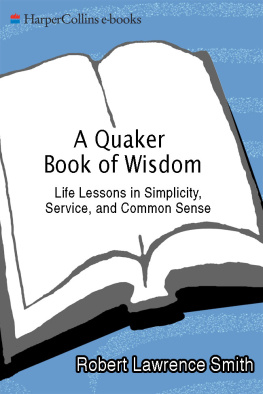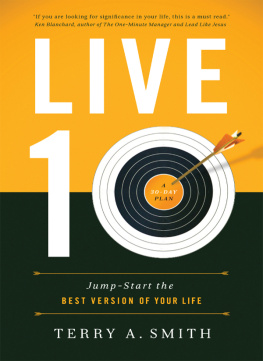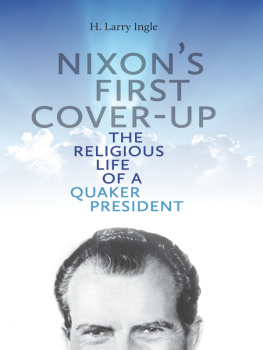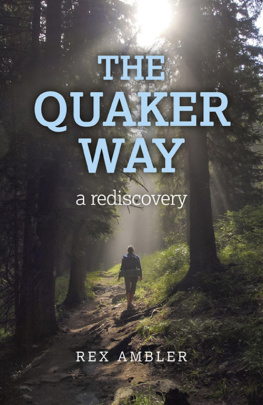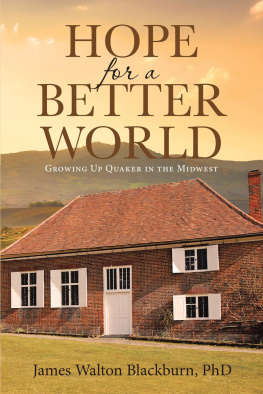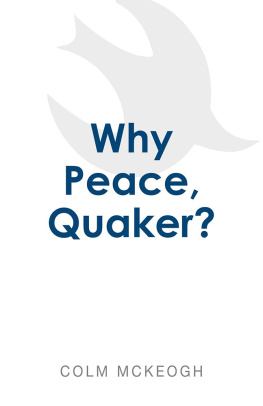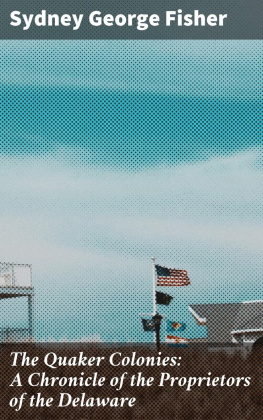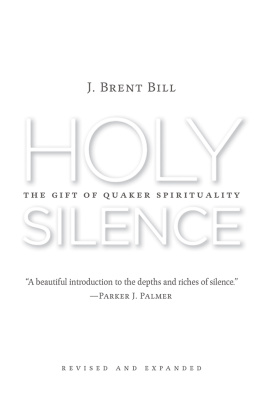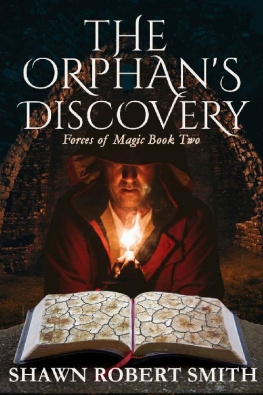For my wife, Eliza,
and for my children, Susie, Katie & Geoff
CONTENTS
W HEN I WAS THIRTEEN my maternal grandfather wrote a monograph tracing three centuries of his Quaker familys life in America. He titled it Notes on My Stokes Ancestry, and in his preface he explained the reasons for his undertaking. With the passing of each generation, Grandfather Stokes wrote, much that has come down by way of tradition in the history of a family is irretrievably lost, so it seems well to gather up such facts as are stored in memory or obtained in research and put them into more permanent form, in the hope that they may prove interesting to my descendants.
There were no Nobel laureates in my mothers family. Although generation after generation of the Stokes family produced doctors, there were no secretaries of state, five-star generals, literary luminaries, glamorous movie stars, bank robbers, long-distance swimmers, or counterespionage agents. No one the media would consider newsworthy. Grandfather, who represented the fourth generation of Quaker physicians practicing in our small town of Moorestown, New Jersey, addressed this fact head-on. The roll call of ancestors, he wrote, includes no figures of outstanding importance in history. Rather, he said, what his book did provide was a record of men and women who lived active, useful lives, and who gave to their nation and their communities the best that was in them.
By recording the well-spent lives of these virtuous folk, Grandfather Stokes hoped to provide an example to follow, and a stimulus to do our part in the world and leave to our descendants a similar record of work well done. In encouraging new generations of the family to honor and emulate their admirable forebears, he was echoing a central message of Quakerism resoundingly set forth by George Fox, the religions seventeenth-century founder: Let your life speak.
I was only one of the immediate descendants that Grandfather was addressing. In addition to my mother, he and Grandmother had two sons, both of whom became doctors like their father, married, and had children of their own. These cousins and my two sisters and I brought the roster of grandchildren to eleven. Yet I read Grandfathers account as avidly as if it had been written for me alone. And I found it both instructive and inspiring. Now, a grandfather myself, I have a deeper understanding of his motives. One of the fruits of aging is the realization that our greatest possession is what we know about life. We can do no better than to pass along our most precious possessions to those most precious to us.
And that is what this little book is intended to do. It reflects at every turn the influences on my life of Quaker thought and practicethe possessions of mind and heart picked up as the son, grandson, great- grandson, brother, nephew, cousin, uncle, and father of Quakers. In writing this book, I have drawn on my own life experience as well as on the wisdom and inner journeys of a number of othersespecially family members, past and present, who have vitally influenced my Quaker outlook on life. I am in some ways continuing Grandfather Stokess message to his descendants, but I am also writing in the belief that every thinking, feeling person is reserving space inside for the sort of lasting sustenance that Quaker wisdom provides.
It is my ever-growing conviction that the compassionate Quaker message badly needs to be heard in todays complex, materialistic, often unjust, and discriminatory society. Every day brings new public debate over issues Quakers have always addressed: war and peace, social justice, education, health care, poverty, business ethics, public service, the use of world resources. The list goes on.
On a more spiritual plane, the circumstances of modern life give far too little nourishment to our common humanityto goodness, courage, common sense, reflection, wonder, patience, understandingto what the Greek philosopher Plato called our mysterious preference for the best. In our frenetic strivings to compete and succeedto acquire wealth and goods in a society where people are often judged by what they own and what they wear rather than who they arehow do the Quaker concepts of simplicity and truth fit in? How can the injunction to express what is best in us win the allegiance of the self-absorbed Me Generation, the rootless Generation X, and the not yet captioned generations to come?
The novelist Saul Bellow, whose humanitarian concerns were shaped by the ethical tenets of Judaism, spoke eloquently in his Nobel Prize acceptance speech of our immense desire for certain durable human goodstruth, for instance, freedom, wisdom. It is my hope in writing this book to offer some of those durable human goods to my own grandchildren as well as to other young people, Quakers and non-Quakers both, as they confront the unpredictable and unforgiving terrain that lies ahead. Looking back, I realize that the major decisions we face in adolescence and youth have enormous power to creatively shape or destructively restrict our choices in later life. For me, Quaker teaching has proven a resource never failing, a home base I could rely on for guidance in making significant decisions throughout my lifebut most critically in young adulthood.
I feel a good deal of hesitancy concerning my central position in this book about Quaker wisdom. Humility is simplicity of spirit, and simplicity of spirit is at the heart of Quakerism. But I am also aware that a lifetime habit of reticence and reserve may have been a disservice to my own three children. I often wonder if I could have given Susie, Katie, and Geoff more guidance as they traveled the course from childhood to adulthood had I been less reluctant to speak out plainly about the significance of their Quaker heritage. I hope that this book will help my children and grandchildren understand the Quaker values that have proven most useful to me. In any case, I now recognize that I will never get anything of worth written if I keep tripping over the humility that seeks to inform this book.
I must point out at the start that Quakerism is a pragmatic faith that depends on inner experience, on habits of acting and feeling that come from living rather than from reading. As we Quakers say, The letter killeth, the Spirit giveth life. A Quakerly concernhow much of life can we learn from books?remains an open question. Yet an incalculable part of what we knowa fact young people often rejectcomes from familiarity, through written accounts, with the lives of those who came before us. Grandfather Stokes understood this truth, as did the authors of the Old Testament Book of Deuteronomy, who remind us, We all warm ourselves by fires we did not build and drink from wells we did not dig.
To me, Quaker values of simplicity and silent contemplation, truth and conscience, seem more important now than ever before. So many of us today are cynical, easily bored, fearful of solitude. We are so over- stimulated by the materialistic messages that advertisers convey, the incessant inconsequential chatter of talk radio and talk television, the constant roar of rock music and political rhetoric, that it is difficult to comprehend the gratifications of a simpler life. Or to understand what simplicity, in the Quaker sense, actually means. To Quakers simplicity does not mean turning the clock back on progress or rejecting the benefits of modern science and conveniences of modern technology. Nor does it mean casting off ones possessions and embracing a life of poverty. And it certainly does not mean casting off joy.
The basic humanistic Quaker precepts of valuing racial and gender equality, promoting social justice, nonviolenceand, yes, sometimes civil disobedienceseem to me so modern, so relevant to todays society, that when I thought about writing this book I was suddenly surprised that no one had written one like it. What particularly struck me is that the Quaker ideals formulated in the seventeenth century remain contemporary in every sense, and the basic injunction to let your life speak, to live each day in accordance with these beliefs, seems totally untarnished by the passage of time.

